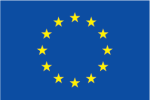The main goal of science is often described as the search for truth in a particular domain of knowledge. Accordingly, scientific research is regarded as incompatible with the manipulation of facts and data, and with the resort to falsehood and deception (for instance, regarding authorship). Therefore, the question that inevitably arises is: Why does misconduct happen in science? What strange attraction leads scientists to act in a way that so openly contradicts the central goal of the scientific enterprise?
The preliminary answer to this question is very simple: Scientific research, like any other human activity, is exposed to dishonesty. After all, “scientists are not different from other people” (Broad and Wade 1982, p. 19). When scientists enter into their office, laboratory or research unit, they continue having the same passions and driving ambitions to which all human beings are exposed. They are tempted, like all human beings, to transgress the boundaries of ethical behaviour to achieve more rapidly their personal and professional goals. This is why it is naïve to assume that, as science embodies by definition a disinterested pursuit of knowledge, scientists are necessarily honest and always comply with ethical standards.


Leave a Reply